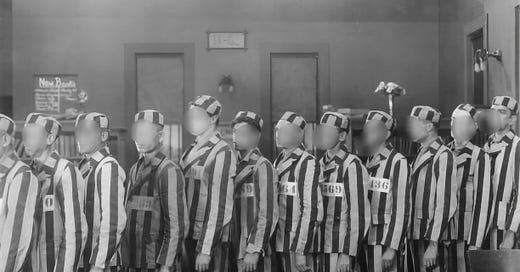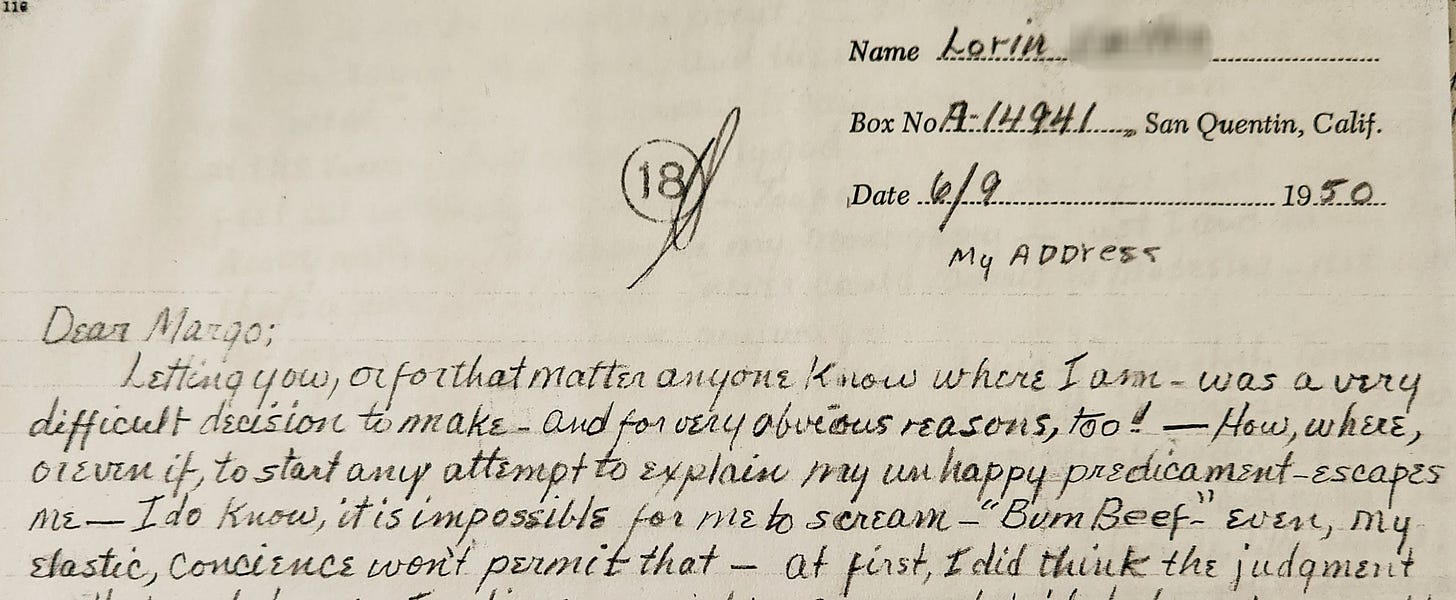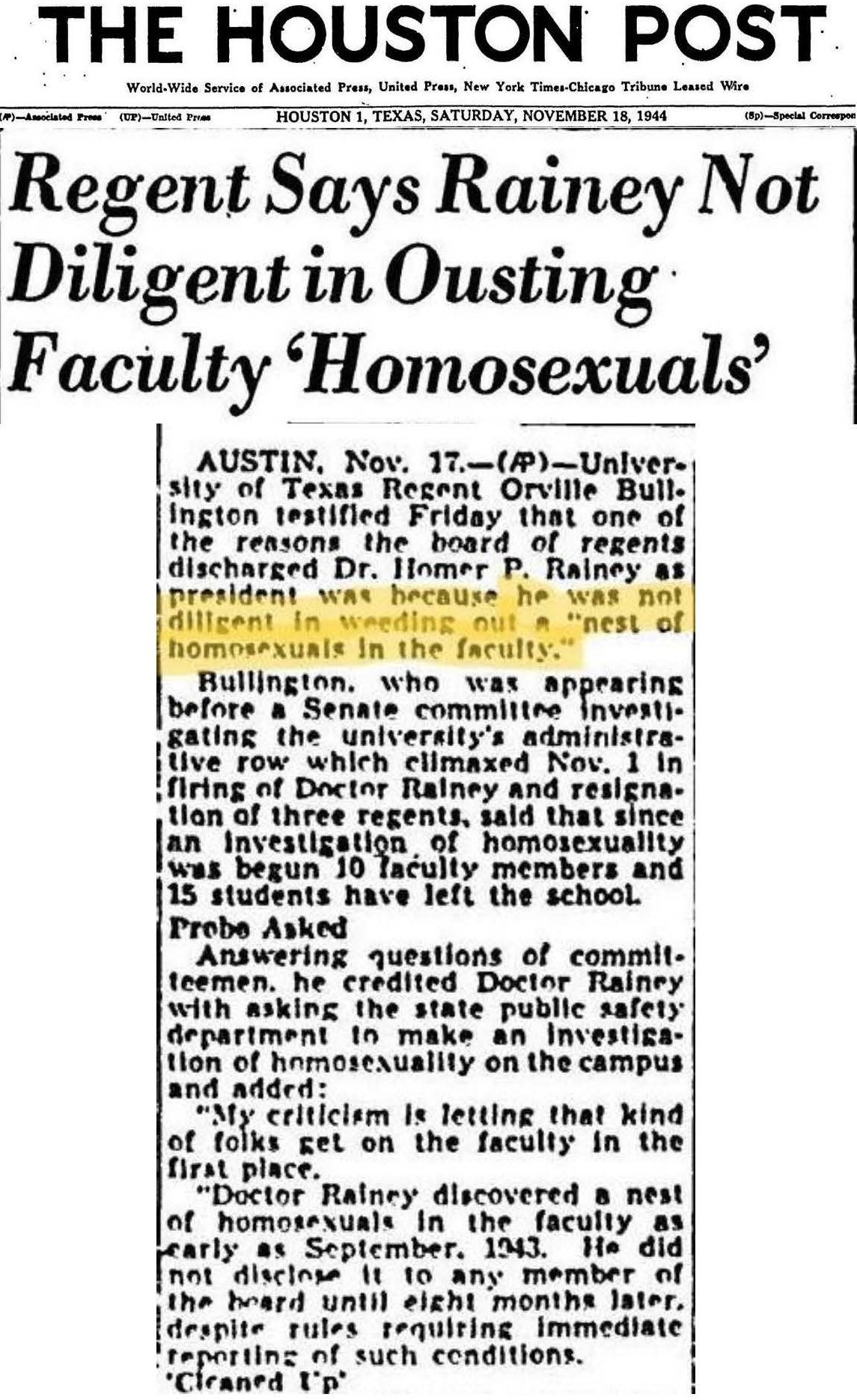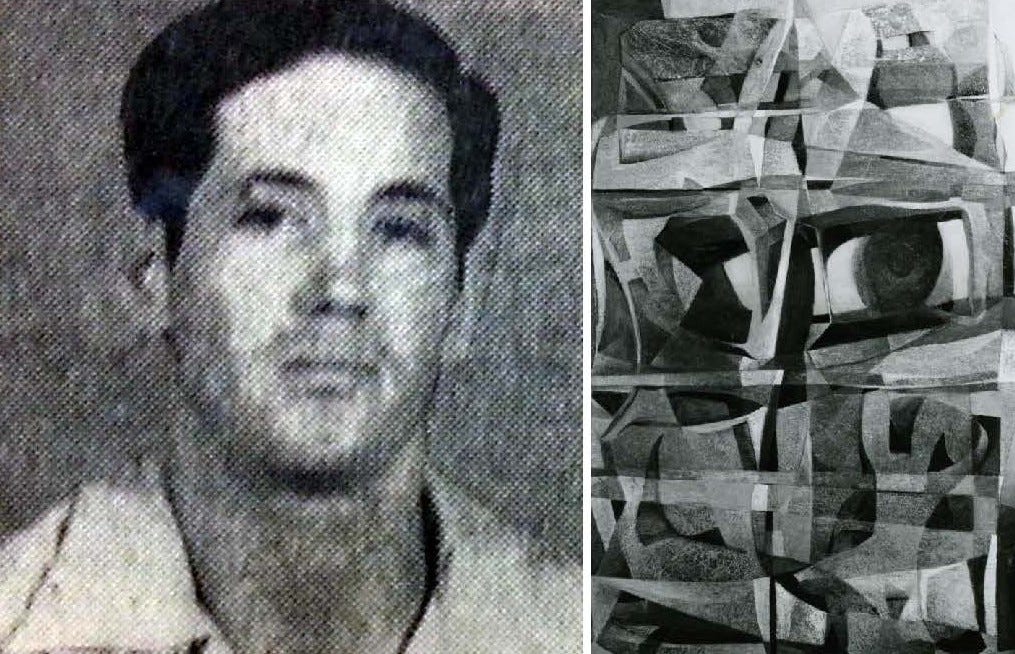An Old Man and His Memories - Part 7: Poor Sweet Lorin
Looking Back at a Long Queer Life
(Note: Catch up on earlier parts of the story HERE.)
Of course, I could not think of past loves without thinking of Lorin, Sweet Lorin, Poor Sweet Lorin.
I had not been so rash with my memories of Lorin as to test them with a rendezvous, so Lorin remained in my memory as he had been when we parted that last morning when the specter of his father, my own youthful love, had come into bed with us. Once there, the idea of him refused to leave, and so Lorin had left. I understood why he had to, though I’d wished he hadn’t.
News of him had reached me over the years, by way of Margo, the conduit of memories of our Houston group of the 1930s, as she had been the center when those of us who made the group were making the memories themselves.
Of course I’d seen Lorin a few times after he’d left our bed that morning, at gallery openings and parties and that evening of the opening of the Stage Canteen, and the unveiling of his murals there, just before I left Houston for my new life à trois in St. Louis. But I’d seen him from a distance – a distance I’d made no effort to traverse. I’d known that no bridge could span that distance, and I’d been “mature” enough not even to try (or pine) to do so.
And yet, and yet, and yet. Isn’t it really true, secretly true, that we make such “mature” decisions, and yet still keep a tiny flame of hope burning that we might be immature enough to try, and surprise ourselves at the outcome? That, surely, was what had compelled me to that final evening with Russel – and the truth that that final “L” was, indeed, lost forever.
So I relished the news of Lorin in his letters to Margo, which she sent along to me, always with the understanding that I’d read them, perhaps cry a tear over them, and then send them back to her, whether blotted with teardrops or not.
In the first years, the youthful hope:
Los Angeles, November 1947
Dear Jonesie,
First we (Alan Taylor) tried San Francisco, but, while it has a lot of charm, it was so conservative that my “BRILLING PIPE DREAMS” – were completely out of place. S-o-o-o-Down to Los Angeles, where things are shaping up much better, “Ain’t that nice” –
I quit work the first of the year to paint and sculpt – just to find out for my own satisfaction, if I could. Painted at least six hours every day – Amazed myself even. In seven months – Jan-July – I acquired thirty canvases and six pieces of sculpture. More work than I’d turned out in the past ten years. Pretty damned good too. Surprised everyone except me. HAW!
And then the thunderbolt of disillusion:
San Quentin, June 1950
Dear Margo,
Letting you, or for that matter anyone, know where I am – was a very difficult decision to make – and for very obvious reasons! How, where, or even if, to start any attempt to explain my unhappy predicament – escapes me. I do know it is impossible for me to scream – “Bum Beef” – even my elastic conscience won’t permit that. At first, I did think the judgement pretty harsh! After salvaging what integrity I had left – I could reach only one conclusion – I received what I deserved, and – I still don’t like it! One to fourteen years. A pretty severe blow. I can only hope the patient recovers, without scars – at least none that show.
Thinking of you, I naturally think of the “Playhouse” days in Houston – what a wonderful, stimulating, time that was. It’s been fun, keeping track of the successes of the “alumnae” of your Playhouse – and quite successful some of them are, too!
Of course those days are almost painfully nostalgic – also sort of Hysterical – either with happiness – or loaded with “Tragedy” – most of the tragedy, at least for my part, isolated remnants left over from adolescence, which had not been fully exploited, so had to be dragged out and milked of every drop of emotion. Remember how every gesture had to be extravagant, and every sentence ended in an exclamation point!
“… I remember too how every ‘New’ love, and there always seemed to be a New one, was the ‘Great’ one. Of course I saw absolutely no humor on this point at the time. But now! My god! Sometimes I wish I could still feel as intensely. Too old. Too fickle – or perhaps just too jaded? Never matter – I’m happy in my monogamy – just I and me – I think that’s a joke (?). Oh! Well, I never could admit to modesty – not without a twinge of conscience, anyway.”
What offense egregious enough to get him there, and for such a fearsome sentence, I never knew. He never named it in his letters, and, if Margo knew, she never said. Those were perilous days for young gay men in search of “New” loves – whether great or small, long or short – and so I often thought he may have fallen prey looking for love at the wrong place, at the wrong time – wrong as the proper world (the straight world) said at the time. But I never knew.
What I did know was that when they finally unlocked his jail cell, and let him fly, he flew back to Texas, to Dallas, and he had a few short – one hopes happy – years, working at times again with Margo, designing the sets and costumes to those other worlds they both flew away to, as often as they could – a few short years, and then they both flew away, and only memories remained. Sweet birds of memory.
Those were difficult times. Frightening times. It was then that the three of us in St. Louis – me, Clem, Our Cellist – grew from our single Hawthorne apartment, where we had lived happily for some years, to the three in a row that would mask our true lives just enough (we hoped) to deflect certainty, if not suspicion, should the need arise; then that we went to openings and galas with women on our arms, instead of each other, women of our circle, amenable to such deceptions; then that we studiously altered the pronouns of our weekend adventures, and our hopes and dreams, when recounting them to all but our closest friends.
The need for such deceptions – such “gay deceivers,” we sometimes called them with grim humor amongst ourselves – rasped our spirits raw, especially so after those roaring days in Paris in the 20s, and even the more muted ones of New York and Houston in the 30s, days when the “Pansy Craze” made the trappings and haunts of our lives not just a risqué lark, but even a thrilling escape from the depressions and prohibitions of the times, for us, but also even for “normal” folks mired in “normal” lives. And then the years of war, when so many might be – so many were – dead decades before their time, so the call became “do it – whatever it might be – while you can!”
But then, the war beginning to look as though it might someday end, and with victory for the Allies, attitudes began to change. It shocked me one morning late in 1944, as I opened my Houston paper (which I continued to receive even though by then a St. Louisan in both geography and mind) to read of a “nest of homosexuals” purged at the University in Austin, students and faculty – and even administrators, not themselves homosexual, but perceived as too inclined to look the other way. Reputations tarnished, careers shattered, lives turned to torments.
And, of course, such terrors did not happen only in Texas, though certainly plenty in Texas welcomed them, and turned them to political advantage with lightening speed. But not just in Texas; everywhere around the country, and at an accelerating rate. We three lived in less peril than many, already settled into our lives, and two of us with incomes not tied to jobs that could be yanked away if rumors spread, or if newspapers sought to boost circulations by listing names of neighbors “nabbed in unsavory places.”
It may have been, I couldn’t know for sure, just such a “nabbing” that left poor sweet Lorin costumed in San Quenten stripes – so I saw him in my mind’s eye, at least, whether he actually wore stripes or not. But in those times, possibility easily transformed to certainty in the dark, fearful hours of night.
But now, thank God, those times and fears were far behind us, and the young, like those boys I’d seen this morning, walking hand-in-hand on West Pine, and the reader at Habs House, and all the others, would never know them. And even those of us now old would know them only in memory. If the arc really does bend toward justice, then surely the future would not repeat the past.








A brilliant story!